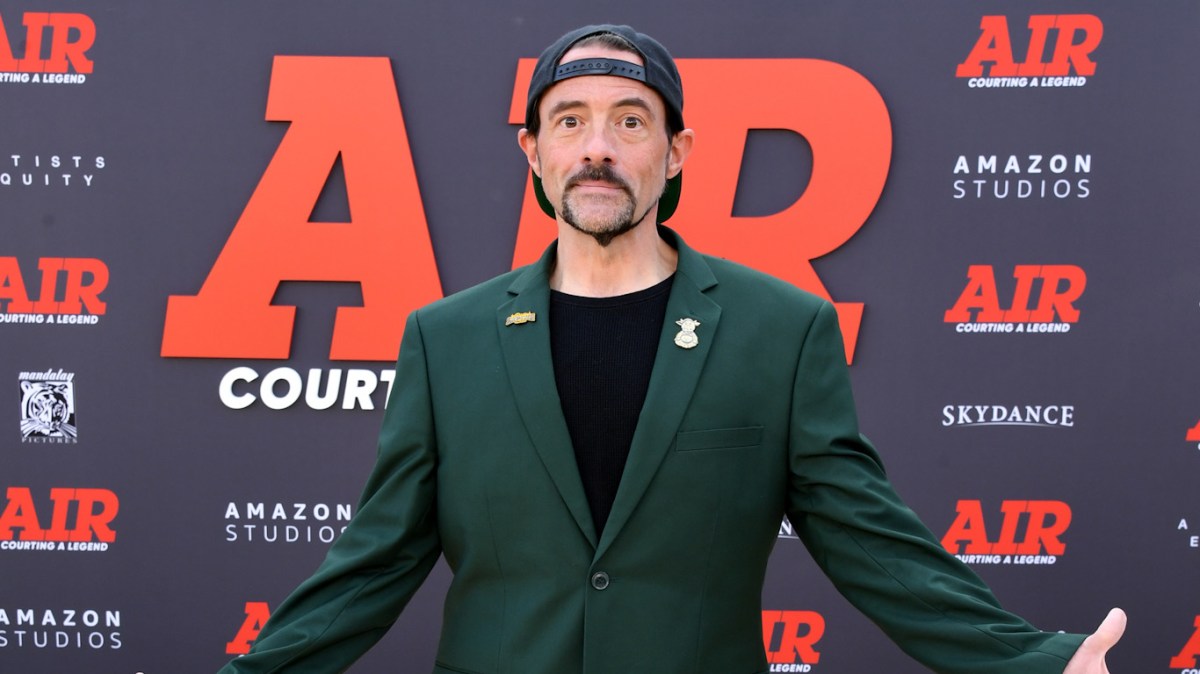Content advisory: This article contains discussion of sexual abuse, and suicide.
Kevin Smith‘s candid revelation about his mental health struggles and the traumatic experiences from his childhood that led him to seek treatment at Sierra Tucson this year is a testament to his resilience.
In a recent interview with PEOPLE magazine, the 52-year-old shared that he sought treatment in January after he felt out of touch with reality one day. Smith told the publication on April 26 that he called a friend following the incident because of the “weird, dark place” he was in mentally and needed help. The Jay and Silent Bob Strike Back star also mentioned that the event was so bad that he wouldn’t have opposed dying. Smith said,
“It was scary… At that moment, I wouldn’t have been averse to not being around any longer. I called a friend and said, ‘I’m in a weird, dark place. I need to go somewhere and get help.'”
Smith would ultimately check in to Sierra Tucson the day after the incident and stay there for a month, where he received therapy for his unresolved childhood trauma that occurred over 40 years ago. The filmmaker’s trauma included sexual abuse and fat shaming.
Smith revealed that he was sexually abused at six, when an older unidentified boy forced him and his friend, a girl around the same age, to participate in explicit acts. At the time and later in Smith’s life, he always recounted that moment as the pair just “playing doctor in an alleyway.” But in treatment, his therapist shifted his perspective on the matter. Smith stated that his therapist described the act as sexual abuse because a third party instructed them “to do something” against their values.
“When a third party is instructing you to do something against your core values like that, that’s sexual abuse.”
Fast forward to a few years later, when Smith was nine. The Jay and Silent Bob Reboot star, who was in the fourth grade, recalled the embarrassing moment when his teacher made fun of his physical appearance and the size of his stomach in front of the entire class. Smith explained that after being publicly humiliated, he developed a persona of himself known as “the other guy” because he wanted “make people love him” before they noticed his size.
“I felt disgusting, like I didn’t matter. That’s when ‘the other guy’ started to appear. I decided to be entertaining and make people love me before they noticed I was fat.”
As Smith began to gain recognition in 1994 for his film The Clerks, he disclosed that he would often use “the other guy” persona as a shield to hide his pain, something he did until recently when he went into treatment. Smith shared that his treatment consisted of individual and group therapy with people from different backgrounds, which was intimidating to him at first because he felt his issues weren’t as significant as those that were seeking treatment. He said,
“In the beginning, it was tough to share when somebody’s talking about watching their friend get killed and I’m like, ‘Well, my fourth-grade teacher told me I was fat. But I learned that there’s no differentiation [between levels of trauma] to the human nervous system. Internally, trauma is trauma.’”
In addition to the star getting help for his past trauma, Smith has learned the strength of self-validation through the many exercises he received during treatment, including controlling one’s breath, something he still does today. Since leaving Sierra Tucson, Smith has made positive changes to care for his mental health, like no longer smoking weed, limiting his time on social media, and working less.
Smith wrapped up the interview by revealing that he is sharing his story because he wants people to know the importance of mental health and to provide the tools that have helped him recover to those that are suffering.

